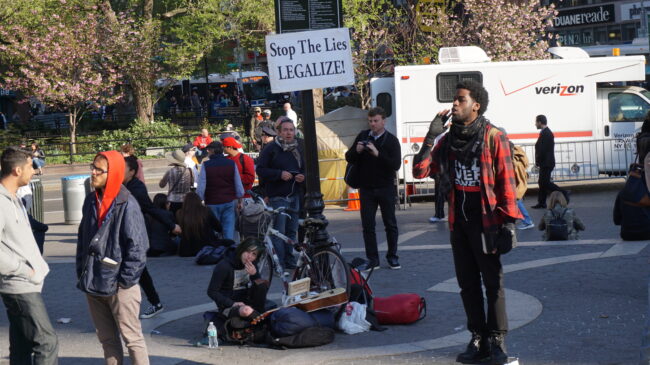Social equity is a trendy term among lawmakers, regulators, and advocates working to create legal marijuana markets and undo the harms of the War on Drugs. Unfortunately, many of the policies intended to help victims of the drug war are failing miserably.
California, New York, New Jersey, Massachusetts, Illinois, Connecticut, Vermont, and Virginia are just some of the states with social equity programs failing to deliver restorative justice and direct relief to victims of the drug war. Instead, state regulators created systems that allow third parties to intercept and absorb the benefits of the programs. In many cases, the parties benefiting from social equity programs are wealthy, connected political insiders and large commercial cannabis companies.
For example, in Illinois, the state took over three years to issue a legal marijuana retail business license to a social equity applicant. When it finally did, the first social equity license didn’t go to upstarts trying to rebuild lives damaged by the War on Drugs. Instead, the social equity license went to an ownership group that included a former Chicago narcotics detective, an executive of the Chicago transit authority, and prominent restauranteurs. Their legal marijuana dispensary opened in 2022 in Chicago’s affluent River North area.
How did this well-connected group qualify as social equity applicants? They promised they would hire — even just for entry-level, hourly jobs — at least six employees who meet Illinois’ social equity criteria. Even then, the social equity employees don’t need to be direct victims of the drug war. If they once lived in a neighborhood where others were arrested for marijuana-related crimes, that’s enough.
Most states have taken at least one of two main failed approaches to social equity. First, lawmakers reserve a subset of available marijuana business licenses for what they call qualified social equity applicants. As in Illinois, simply having lived in proximity to others who suffered these criminal consequences or hiring from among that group can meet these social equity criteria. Not surprisingly, many companies and political insiders find ways to beat regulators. In California, wealthy investors paid social equity applicants small amounts to serve as frontmen for their businesses, allowing them to secure privileged marijuana licenses.
Second, state governments often dedicate a portion of their marijuana tax revenue toward grants to community-based organizations that pledge to promote job training to victims of the drug war and more nebulous goals, such as addressing “the root causes of violence.” In this case, politically connected groups identified opportunities to create organizations that qualify for the grants and then handsomely pay their executives while shielding them from doing anything that could be meaningfully measured, allowing the individuals and companies to grab the taxpayer money intended for actual victims.
If states are committed to helping the victims of the War on Drugs, these social equity programs should be redesigned from the ground up with two goals in mind. First, states should stop erecting barriers to entry into legal cannabis markets. Marijuana suppliers who were working on the black market should have a path to transition to the legal, regulated market easily.
Unfortunately, states like New York are doing the opposite — reigniting the drug war with massive arrests and asset seizures of unlicensed marijuana sellers. These raids are intended to help the connected businesses that got state marijuana licenses.
Second, states should target restorative justice policies for the exclusive benefit of actual victims of the drug war. It is not enough for policymakers to say they’re committed to social equity while enacting policies that open the door to cronyism and corruption. They can start by expunging drug convictions for things now legal, removing regulations preventing people with nonviolent drug convictions from working in the legal cannabis industry, eliminating caps on the number of licenses, and minimizing fees and taxes that prevent non-wealthy individuals and small businesses from starting up.
Existing social equity programs are failing to deliver true justice.
A version of this commentary first appeared at RealClearPolicy.


